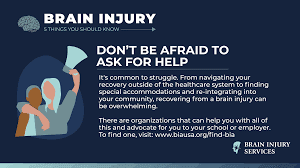How Brain Injury Support Services Are Making a Difference?

The most common cause of traumatic brain damage is a severe blow to the head or body. Traumatic brain damage may also result from an item passing through the brain tissue, such as a gunshot or a piece of fractured skull bone. Therefore, Brain Injury Support Services helps people with brain injuries in their quest for productive employment. Your brain cells may have a brief detrimental effect from mild traumatic brain damage. A more severe traumatic braininjury may result in bleeding, tissue damage, bruising, and other physical harm to the brain. These wounds may have long-term effects or possibly be fatal. TBIs can affect anybody, although men account for about 80% of all cases. TBIs also occur more often in adults over 65. This age group is more prone to falling and striking their heads when they lose their equilibrium. However, even young children can get traumatic brain injuries (TBIs) from accidents like falling from a bed or changing tables, or, less frequently, fr
